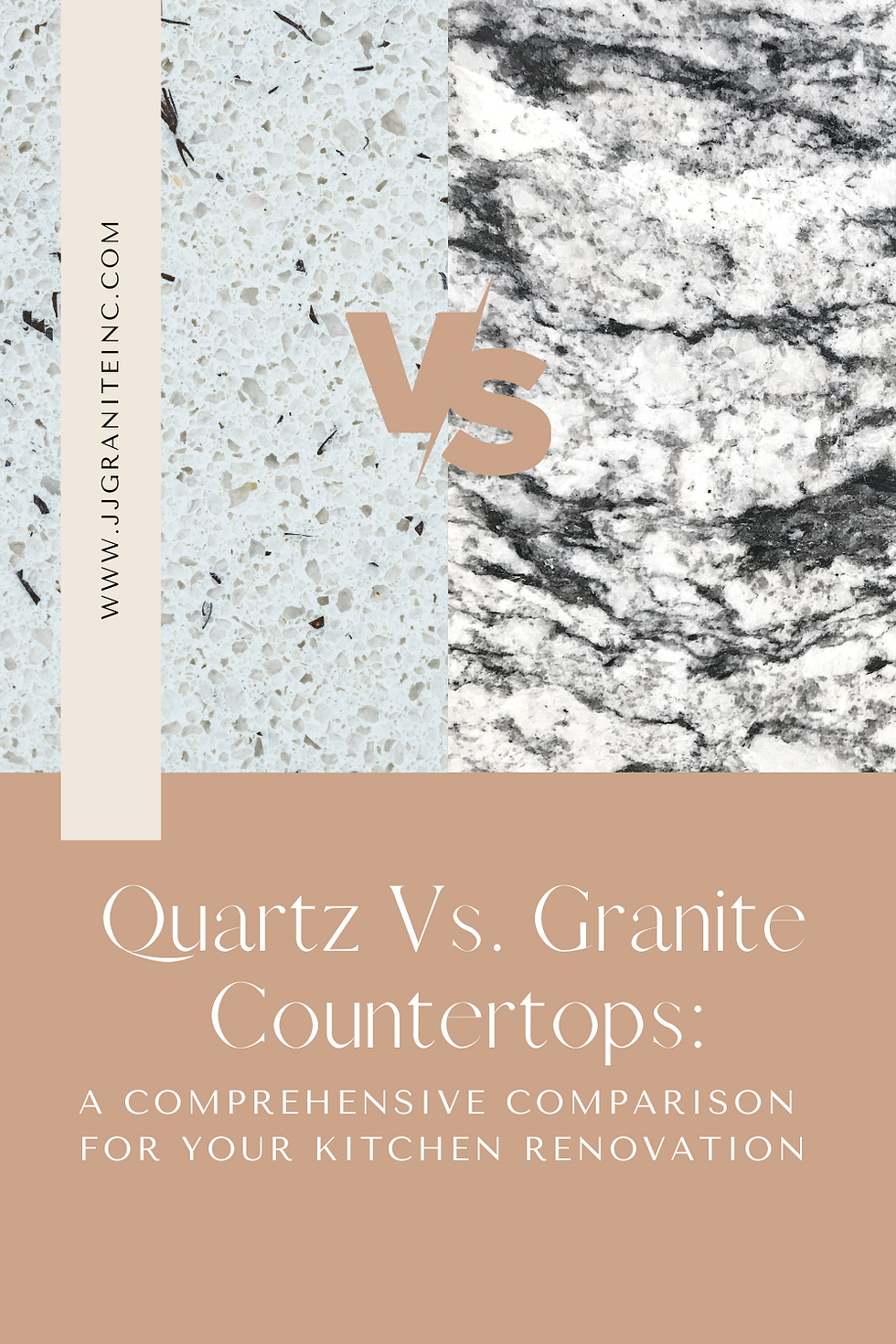Quartz Countertops: A Comprehensive Guide
- JJ Granite

- Mar 21, 2023
- 3 min read

Quartz countertops have become increasingly popular in recent years, due to their durability, versatility, and unique aesthetic. But with so many options on the market, it can be difficult to know what to look for when choosing quartz countertops for your home or business. This comprehensive guide will help you navigate the world of quartz countertops, from their benefits and disadvantages to how to care for them properly.
What are Quartz Countertops?
Quartz countertops are engineered stone surfaces made from a combination of natural quartz and polymer resins. This combination creates a surface that is highly resistant to scratches, stains, and heat, making it an ideal choice for high-traffic areas such as kitchens and bathrooms. Quartz countertops are available in a wide variety of colors, patterns, and finishes, making it easy to find a surface that fits your style.
Benefits of Quartz Countertops
Durability: Quartz is a hard and strong material, making it one of the most durable countertop options available. Unlike natural stone surfaces such as granite and marble, quartz countertops are non-porous and do not require sealing, which makes them a low-maintenance choice for busy households.
Versatility: Quartz countertops are available in a wide range of colors, patterns, and finishes, so it's easy to find a surface that complements your kitchen or bathroom decor.
Hygienic: Quartz countertops are non-porous and do not support the growth of bacteria, making them a hygienic option for kitchens and bathrooms.
Low Maintenance: Quartz countertops are easy to clean and maintain, requiring only a simple wipe-down with a damp cloth. Unlike natural stone surfaces, quartz countertops do not need to be sealed, which can save you time and money over the long term.
Disadvantages of Quartz Countertops
Price: Quartz countertops can be more expensive than other countertop options, such as laminate or solid surface.
Heavy: Quartz is a heavy material, which can make it difficult to install in some spaces. It is important to have a professional install your quartz countertops to ensure a proper and safe installation.
How to Care for Quartz Countertops
Clean with a damp cloth: To clean your quartz countertops, simply wipe them down with a damp cloth. Avoid using abrasive cleaners or scratch pads, as these can damage the surface.
Avoid placing hot pots and pans directly on the surface: Quartz countertops are heat resistant, but placing hot pots and pans directly on the surface can cause damage. Use trivets or hot pads to protect the surface.
Avoid exposing the surface to chemicals: Quartz countertops are highly resistant to stains, but exposure to harsh chemicals can cause damage. Be sure to wipe up spills promptly and avoid exposing the surface to chemicals such as bleach or drain cleaners.
Avoid cutting directly on the surface: Cutting directly on the surface of your quartz countertops can cause scratches. Use a cutting board to protect the surface.
Final Thoughts on Quartz Countertops
Quartz countertops are a popular choice for homeowners and business owners looking for a durable, low-maintenance, and attractive surface for their kitchens and bathrooms. With a wide range of colors and patterns available, it's easy to find a quartz countertop that fits your personal style. However, it's important to keep in mind that quartz countertops can be expensive and heavy, and require professional installation. With proper care, a quartz countertop can provide you with a beautiful and functional surface for years to come. Whether you're a fabricator, builder, contractor, or homeowner looking to update your space, JJ Granite's showroom is the perfect place to find the perfect stone for your project.




Comments